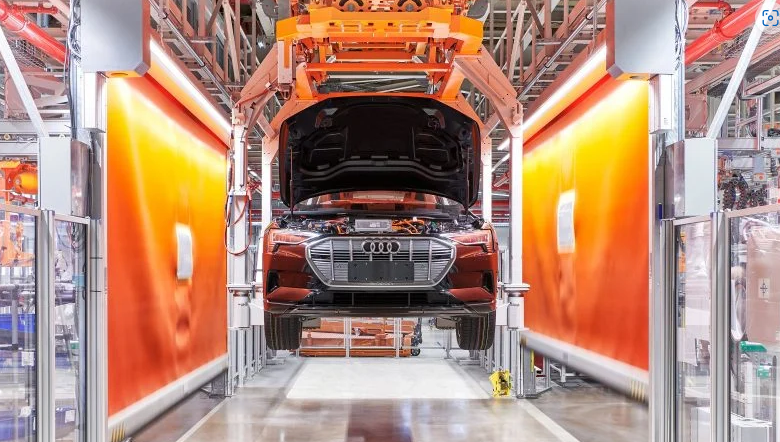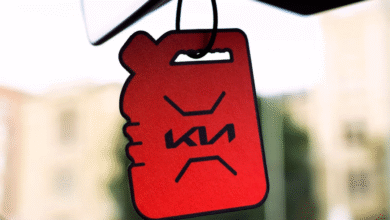Audi Plans to Halt European Production of the Q8 e-tron

Audi is considering a significant restructuring of its operations in Belgium, potentially halting the production of the Q8 e-tron due to low demand. The automaker’s Brussels plant, where the Q8 e-tron and Q8 Sportback are currently manufactured, may face closure. This move could impact nearly 3,000 workers, raising concerns about job losses in the region. The company is assessing the profitability of continuing production at the site, particularly in light of the challenges faced in the luxury electric vehicle market.
Challenges in the Luxury Electric Segment
While Audi’s Q8 e-tron has been a key player in the luxury electric SUV market, it has struggled to generate significant sales volumes. This is partly due to the niche nature of the luxury electric vehicle market, which caters to a more limited consumer base. Unlike mass-market EVs, high-end electric SUVs face a unique set of challenges, including stiff competition from newer entrants like Tesla and startups like Rivian and Lucid. Additionally, traditional luxury automakers such as Lotus are making significant strides in the electric space, further intensifying the competition .
The Q8 e-tron, which originally launched as the Audi e-tron before being renamed, has also faced stiff competition from newer models that offer more advanced technology and improved range. As the electric vehicle market continues to evolve, Audi is finding it increasingly difficult to maintain a foothold with its current offerings. This has led the company to reconsider its production strategy for the Q8 e-tron, particularly in Europe, where sales have been slower than expected.
Potential Factory Closure
The Brussels plant has long been an essential part of Audi’s European operations, but the potential closure is a reflection of broader industry trends. Audi cites a “global decline in customer orders in the electric luxury segment” as a primary reason for considering this drastic measure. The decline in demand has made it difficult for the company to justify continuing production at the Belgian site. In comparison, Audi’s production facility in Mexico offers lower labor costs, making it a more competitive option for manufacturing the Q8 e-tron. The vehicle is also produced in China, further diminishing the need for European production .
Despite these challenges, Belgian government officials have been working to keep the plant open by offering tax incentives and other financial support. However, these efforts may not be enough to counterbalance the economic realities Audi is facing. The closure of the Brussels factory would be a significant blow to the local economy, with thousands of jobs potentially on the line.
The Arrival of the Q6 e-tron
Another factor contributing to the possible cessation of the Q8 e-tron’s production is the upcoming release of the Q6 e-tron. Built on a more advanced platform, the Q6 e-tron is expected to appeal to a broader audience, offering improved performance and technology compared to its predecessor. Though the Q6 is shorter than the Q8 by 22 centimeters, Audi anticipates that this will not be a major drawback for consumers. The arrival of the Q6 e-tron could cannibalize sales of the Q8 e-tron, further diminishing its viability in the marketplace .
While the future of the Q8 e-tron remains uncertain, Audi’s potential decision to halt production underscores the complexities of navigating the luxury electric vehicle market. As competition heats up and consumer preferences evolve, automakers must adapt to stay ahead. For Audi, this could mean shifting focus to newer models like the Q6 e-tron while phasing out older offerings like the Q8 e-tron. Whether or not the Brussels plant will remain operational in the wake of these changes remains to be seen.




